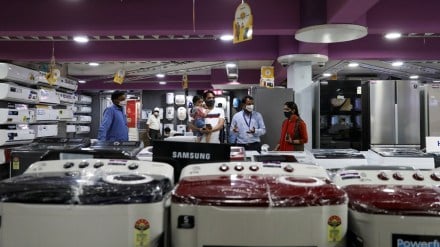– By Ajay Mehta
The Consumer Durables and Information Technology (CDIT) business is looking forward to the upcoming Interim Budget 2024, which will hopefully acknowledge its important role and offer necessary growth incentives. The sector anticipates an easing of compliance standards to facilitate operations and lower taxes to ease financial obligations.
Finance Minister Nirmala Sitharaman will announce the Interim budget on February 1, 2024, and it will be extremely important for the CDIT industry. The sector highlights how crucial it is to prioritize R&D and streamline the supply chain for continued growth, as players eagerly await the reveal.
AIWA India sees the CDIT industry budget of 2024 as a stimulus for innovation and growth, embracing the pulse of technological evolution. Looking ahead, we expect a budget that supports policies that advance the consumer electronics and IT industries while also creating an environment that is favorable for research and development. We anticipate a budget that is in line with the changing demands of the sector, propelling us toward a more connected and intelligent future in this age of limitless possibilities.
Following are some major expectations for the sector, which is being driven by changes in lifestyles, increased disposable incomes, and technology advancements:
1. Innovation-Fueling: Highlighting the imperative for fostering innovation, there is a growing consensus on the need for fresh incentives. It is crucial to reallocate resources towards research and development (R&D) initiatives in the face of swift technological progress.
2. Sustainability at the Front: Advocating for sustainable practices in response to the increasing environmental awareness, there is a collective call for fiscal incentives. Promoting the creation and uptake of energy-efficient products while offering customer incentives helps to establish the sector as a responsible participant in the global economy.
3. Robust Supply Chain Solutions: Calling for strategic funding to fortify the consumer durables supply chain in the wake of recent disruptions, there is a pressing need for a resilient system. Enhancing efficiency and mitigating external risks should be a priority, beginning with the sourcing of raw materials and extending through the entire distribution process. This comprehensive approach is vital to ensure the stability and reliability of the consumer durables supply chain.
4. Embracing Digital Transformation: Highlighting the paradigmatic shift in consumer behavior towards e-commerce, there is a call for attention to incentivize digital platforms and streamline payment systems. Recognizing the potential for catalyzing growth and enhancing accessibility, proposals for financial measures are put forth to support and expedite the ongoing digital transformation.
5. Empowering the Workforce: Championing the importance of budgetary allocations in skill development initiatives, there is a recognition of the industry’s demand for a qualified workforce. The endorsement of tailored training programs is pivotal in enhancing the overall proficiency of the workforce and unlocking new opportunities within the sector.
The tax system pertaining to televisions is one important issue that needs consideration. A general tax decrease to 18 percent is advised for TVs larger than 32 inches, which are currently subject to a 28 percent tax. This modification is especially necessary in light of television’s growing influence in education and information sharing.
With resilience, innovation, and sustainability at the forefront, the sector is eagerly awaiting a forward-thinking budget that will propel it into a future characterized by advancement and global influence. Stakeholders are eagerly awaiting the government’s vision for this vibrant and rapidly changing sector.
(Ajay Mehta is the MD at AIWA India.)
(Disclaimer: Views expressed are personal and do not reflect the official position or policy of Financial Express Online. Reproducing this content without permission is prohibited.)
